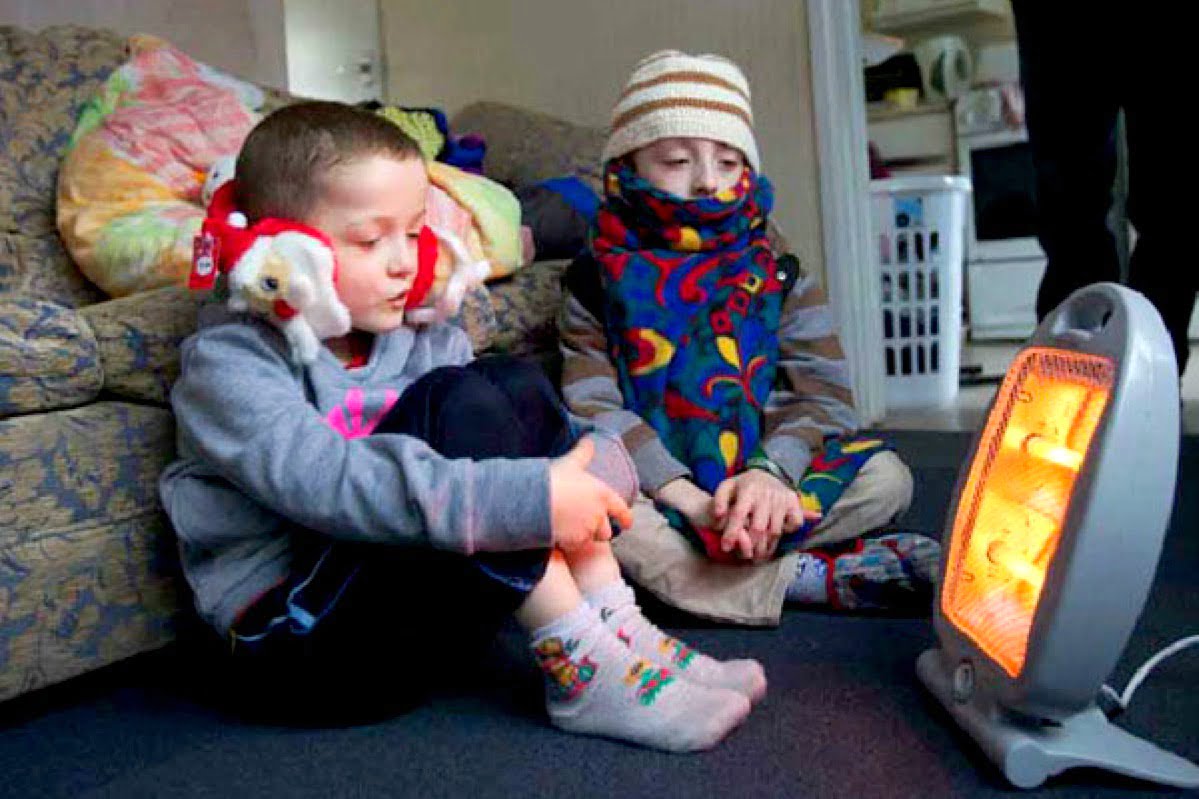Living conditions in Britain are becoming unbearable for many, with a million UK families now worrying about the choice between heating or eating this winter. The “heat or eat” dilemma, however, has become nothing more than an empty phrase for those who profit from it. Khaled Labidi explores the brutal choice facing many households this winter.
Living conditions in Britain are becoming unbearable for many, with a million UK families now worrying about the choice between heating or eating this winter. The “heat or eat” dilemma, however, has become nothing more than an empty phrase for those who profit from it.
Npower has revealed that a third of adults are worried about having to reduce the cost of their utility bills this winter in order to save money for food. Fewer hot baths and showers, turning the thermostat down, and using the washing machine less is the harsh reality for one million households.
It is implicitly assumed that this is some sort of self-inflicted problem; a problem arising, we are told, from people simply not being able to manage their finances properly. This claim is no doubt intended to instil a sense of hopelessness amongst those affected. But the reality is very different.
The very idea that living standards have to be compromised, according to the season, is frightening in a society with as much wealth as ours. It is a symptom of a system that clearly does not work in favour of workers and the poor; a system that hits not only low income families but also older people who have retired after spending the bulk of their lives slaving away for the bosses.
Energy bosses’ hypocrisy
This is a very real issue that deserves a very real response. In a desperate attempt to save face, Npower, one of the big six energy companies, has decided to set up its own charity – the Npower Foundation. But the motives of this new endeavor are completely self-serving.
According to Ofgem, the Office of Gas and Electricity Markets, the big six electricity and gas suppliers made a profit of £1bn last year, despite losing millions of customers. By charging higher prices to the people that did not switch, profit margins have soared in recent years.
The fact that almost half of those who are either unemployed or in low-skilled work have never changed electricity or gas supplier demonstrates that the profits made for shareholders are actually made from cheating the people who are most in need of affordable bills.
Nothing spells out the injustices of capitalism more clearly than one of the big six energy companies setting up a charity to be funded by one section of the working class in order for another section not to have to choose between heating or eating. Furthermore, the policies put forward by the Foundation seem to suffice as little more than tokenism.
The aim to “give people in crisis the breathing space to get back on their feet” completely misses the point. The crisis is caused by corporations like Npower seeking to maximize profit for their shareholders and, in doing so, forcing people to choose between basic human needs.
Again, the aim to “raise awareness of the heat or eat dilemma so that more support is provided to tackle it” is riddled with hypocrisy. If Npower was serious about tackling the problem that its incrementally rising prices have brought about, why are the donations not solely coming from the company’s fat-cats?
Broken status quo
Admittedly, the work that Npower’s pre-existing ‘Fuel Bank’ scheme has carried out helps around 35,000 people every year. But this barely even covers the short-term problems, given the real numbers who need help. With the number of people affected by the “heat or eat” dilemma climbing at the same time that rich corporations reign in more and more profits, the systemic contradictions are rapidly being laid bare.
These tokenistic acts of generosity from big business should always be examined more closely than they would like you to look. Their pseudo-altruism is not to be trusted.
As the “heat or eat” dilemma looms for more and more families and the elderly this winter, the problem must gain the attention that it deserves. Instead of readily accepting this as the status quo, as the major energy companies and the Tory government would like, we need to question why we live in a society that can’t provide a decent standard of living for millions.






